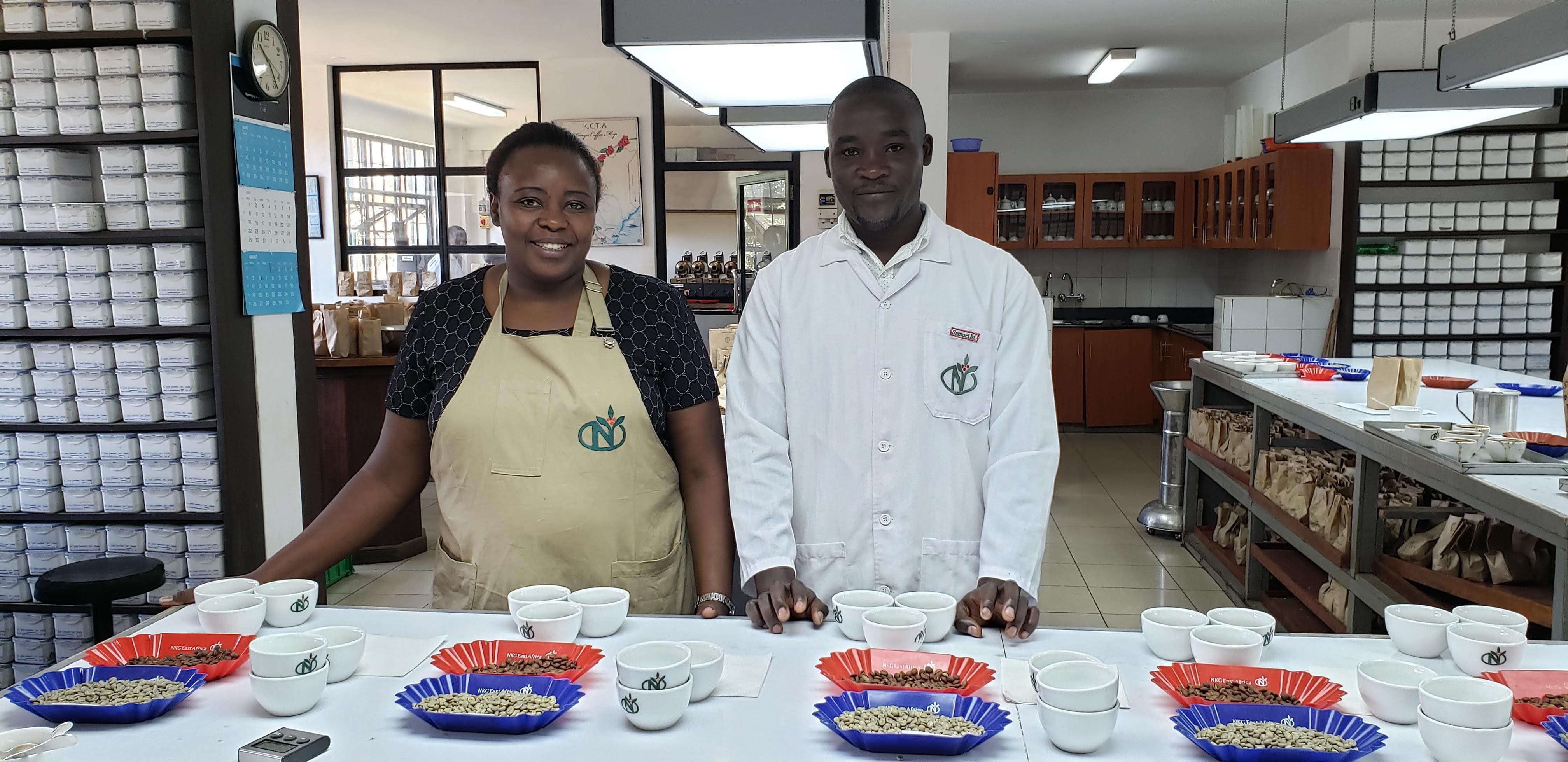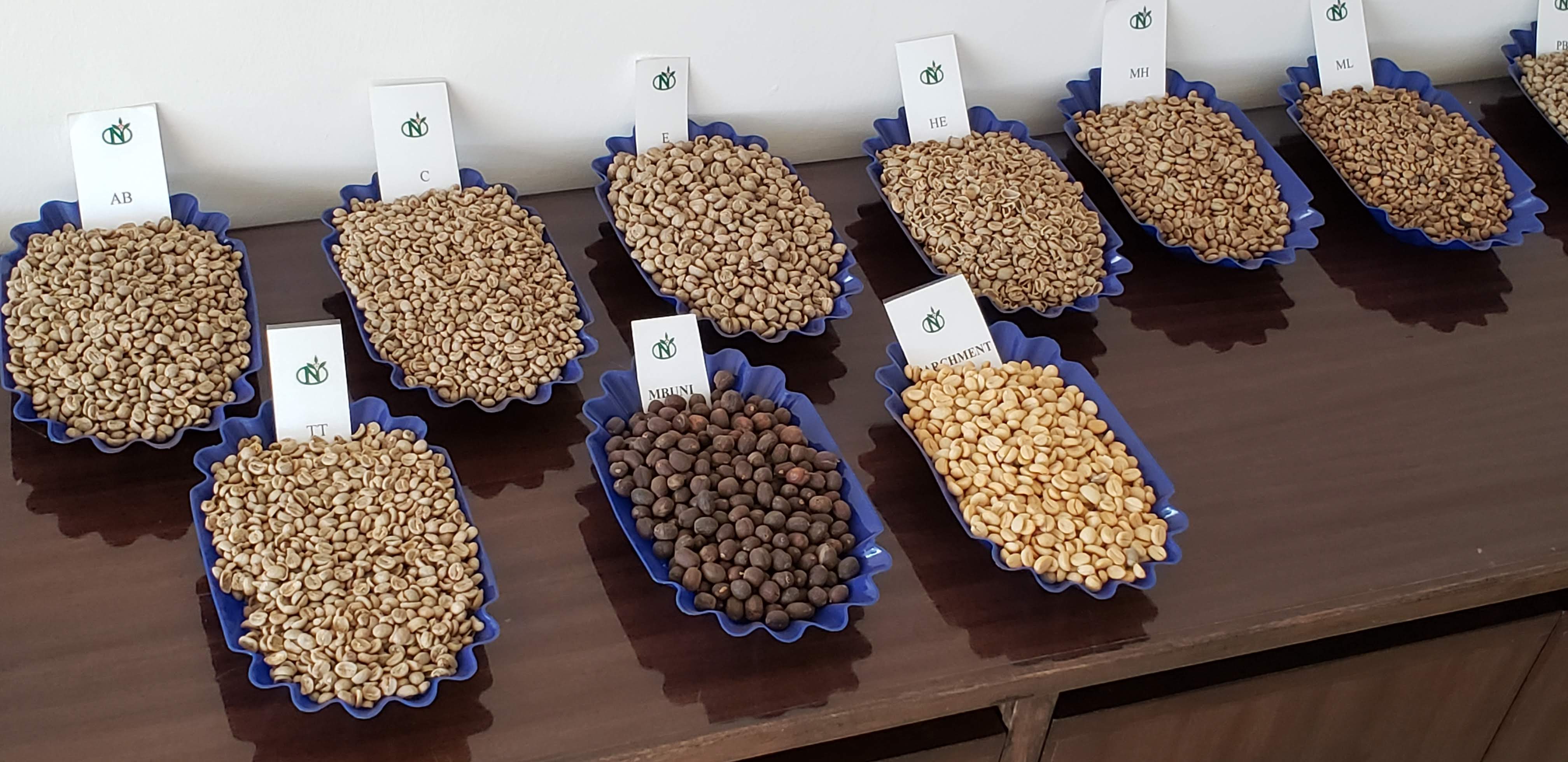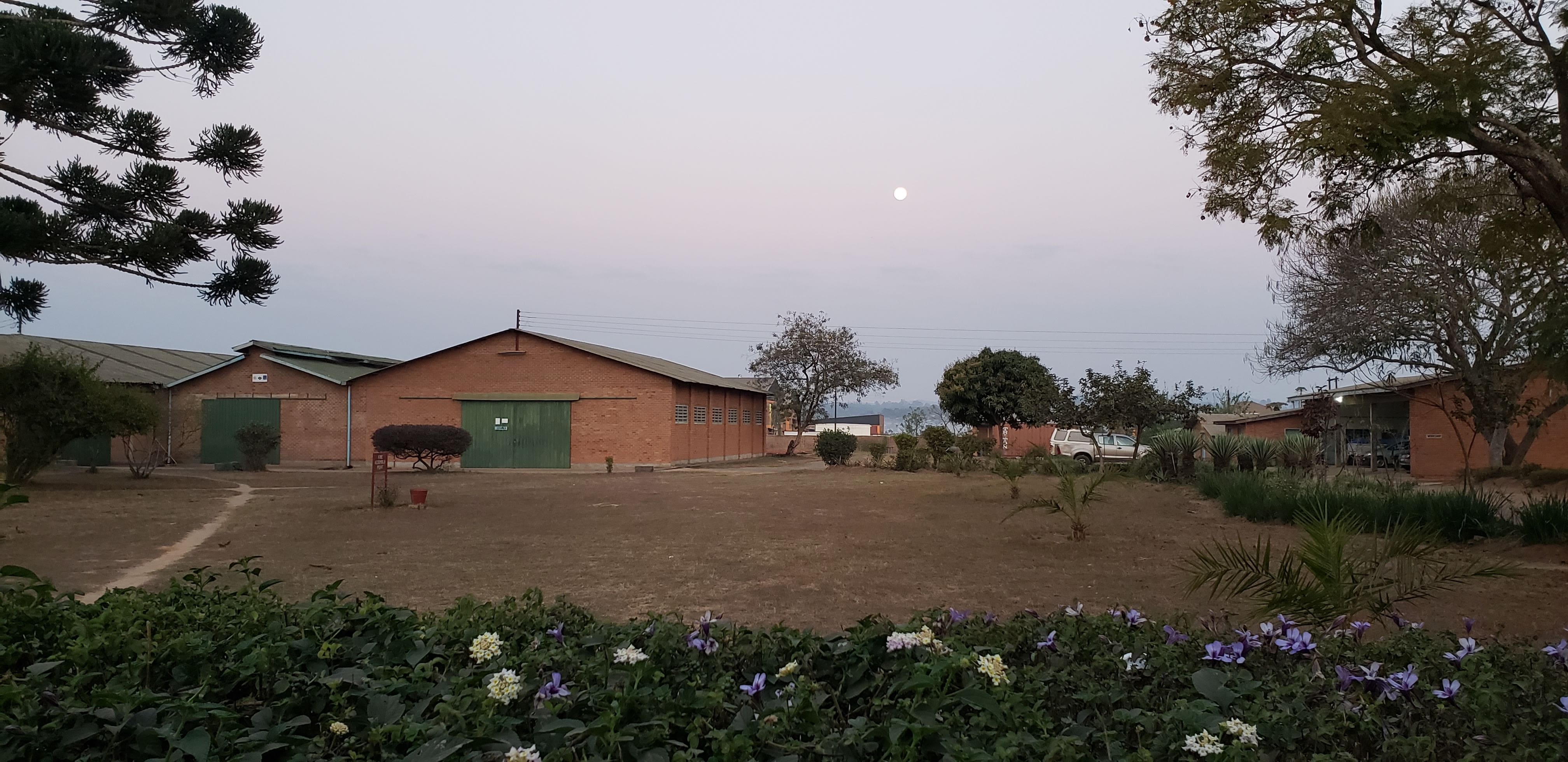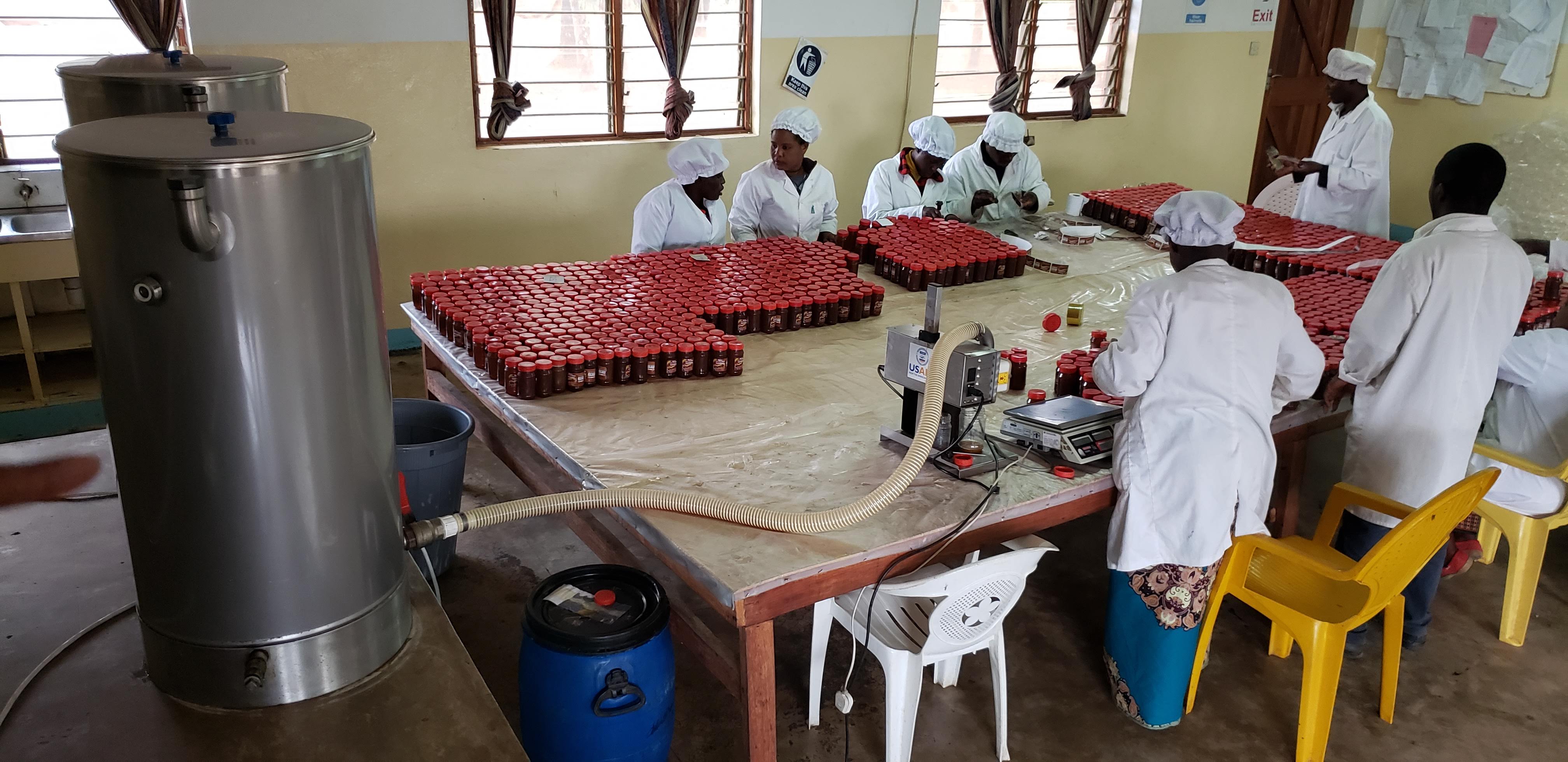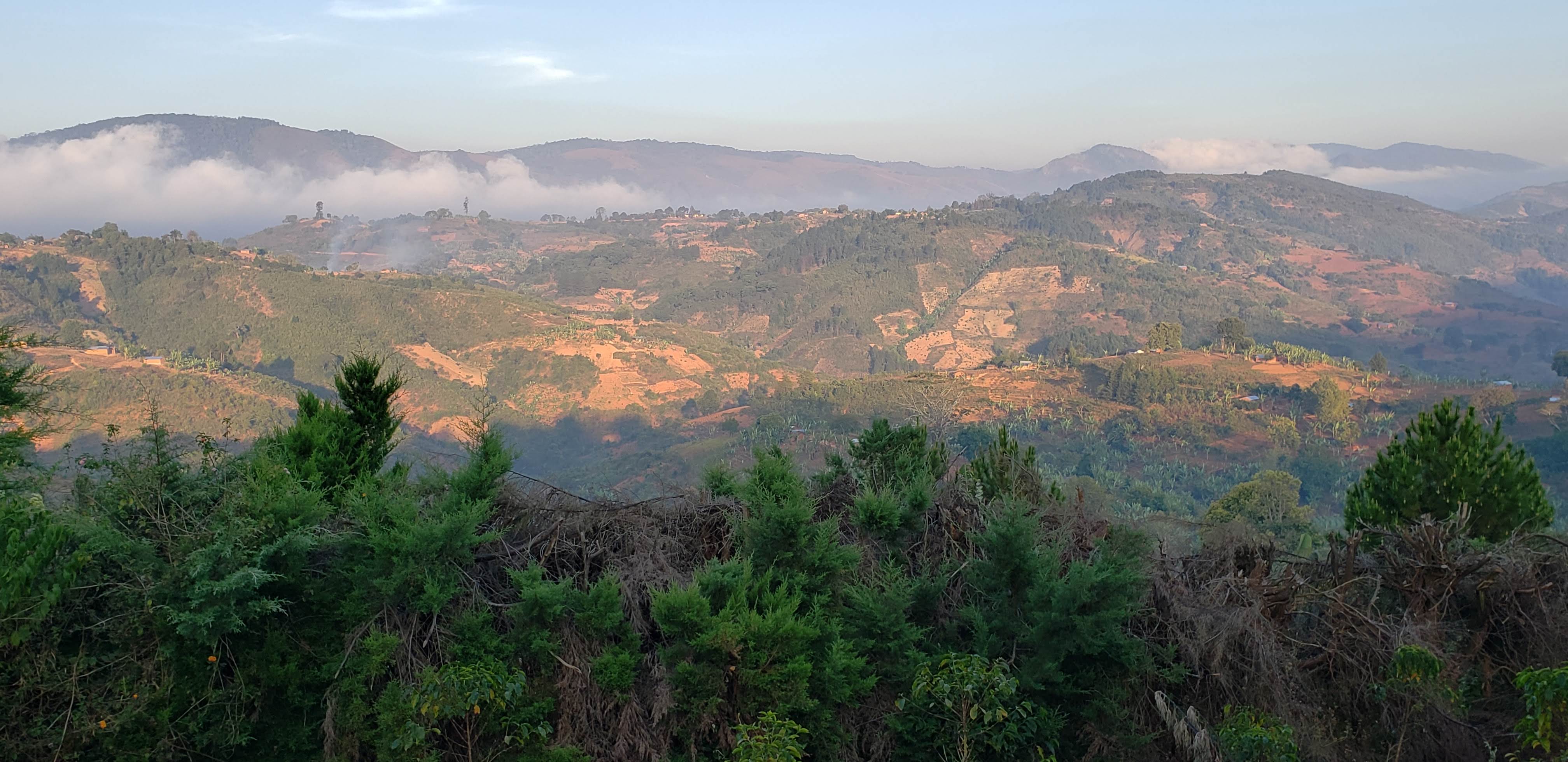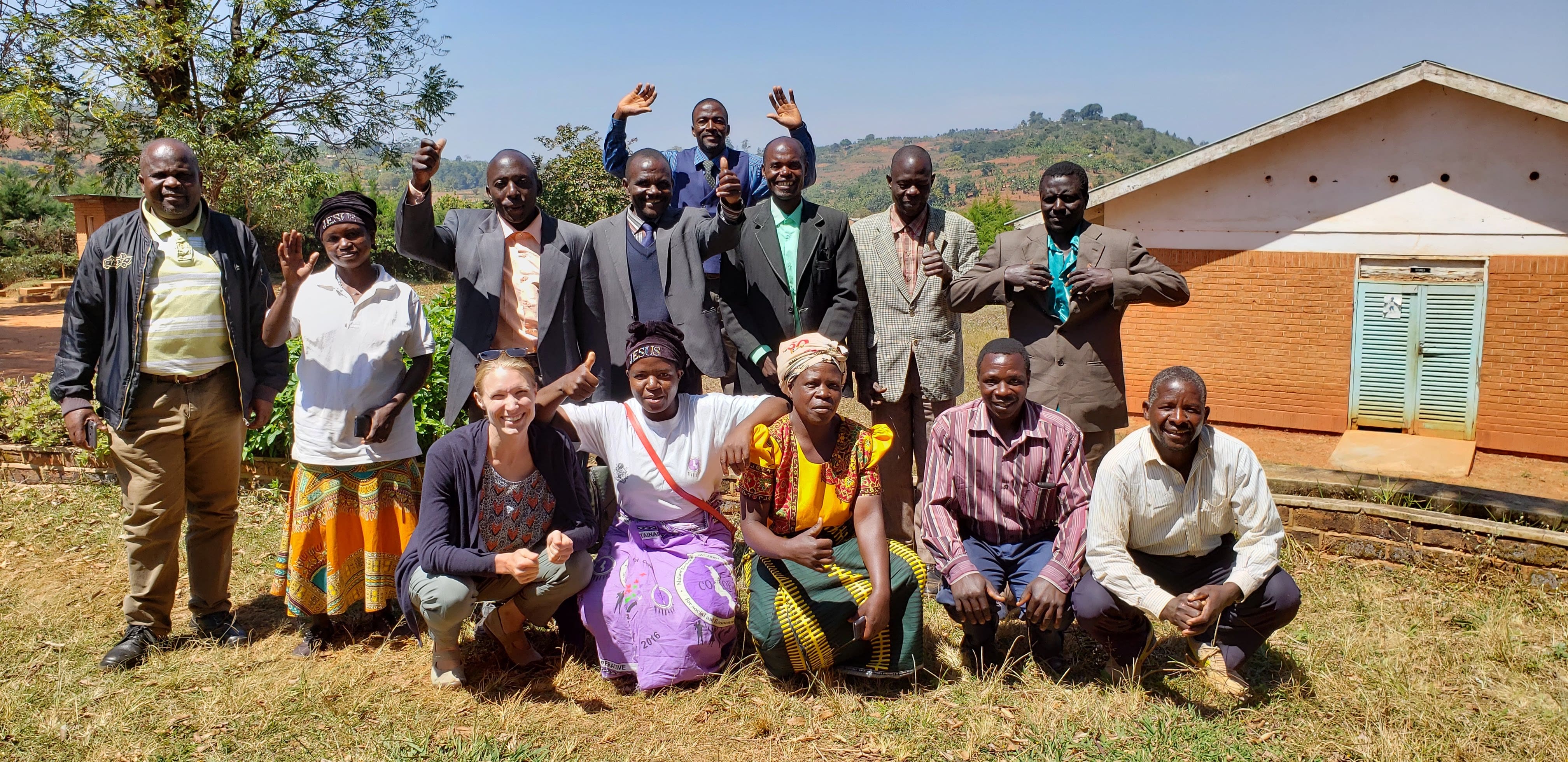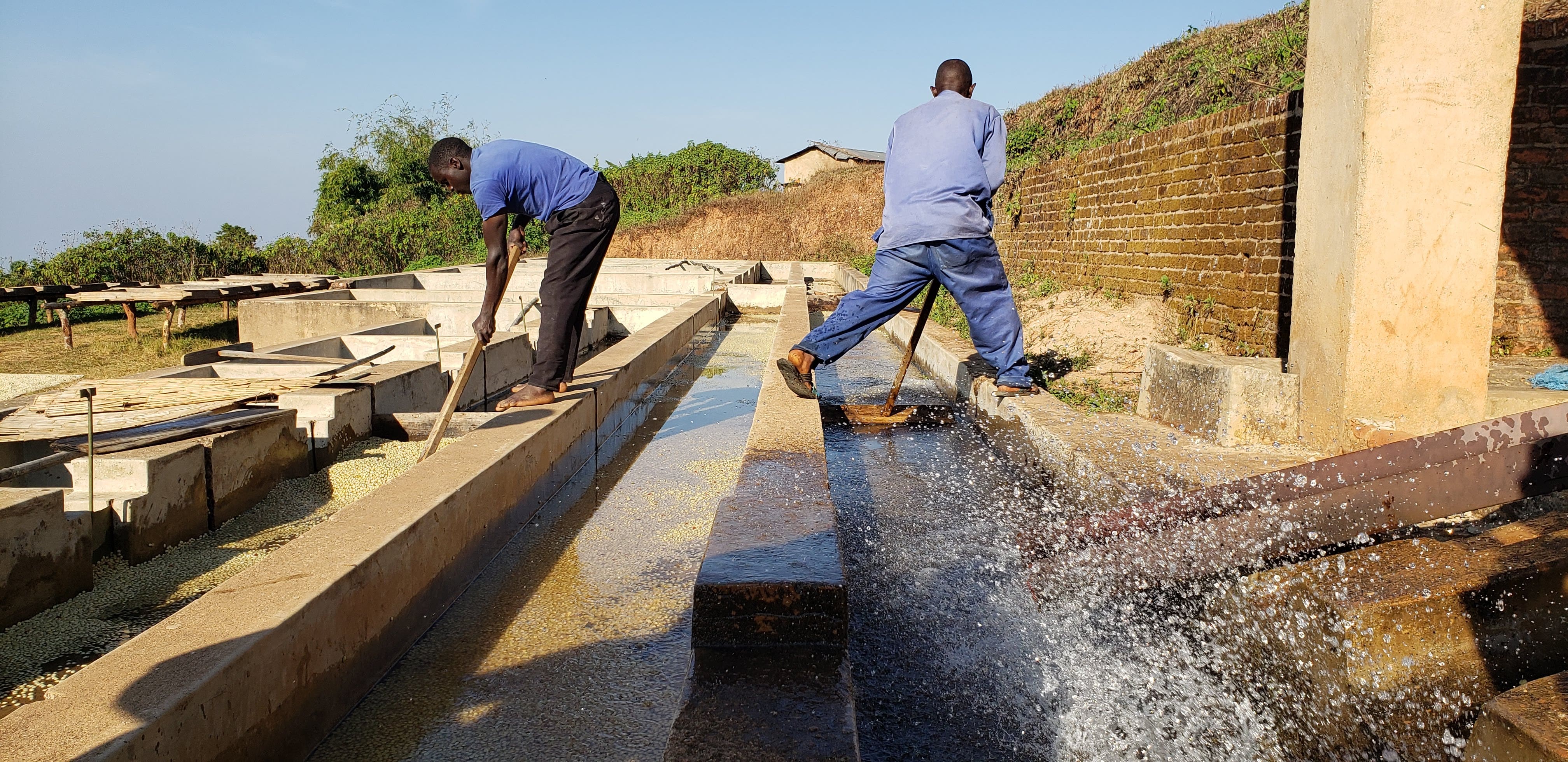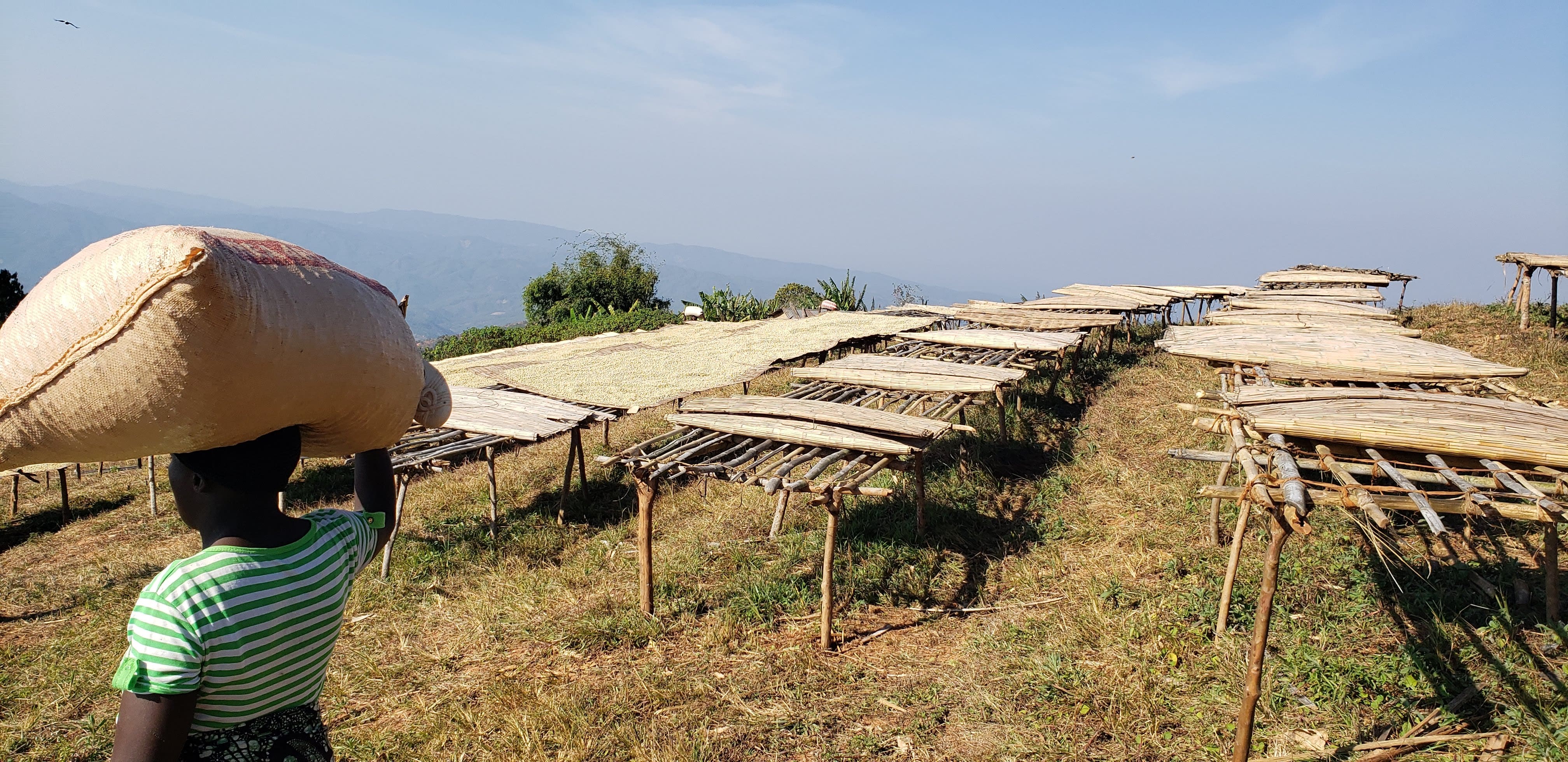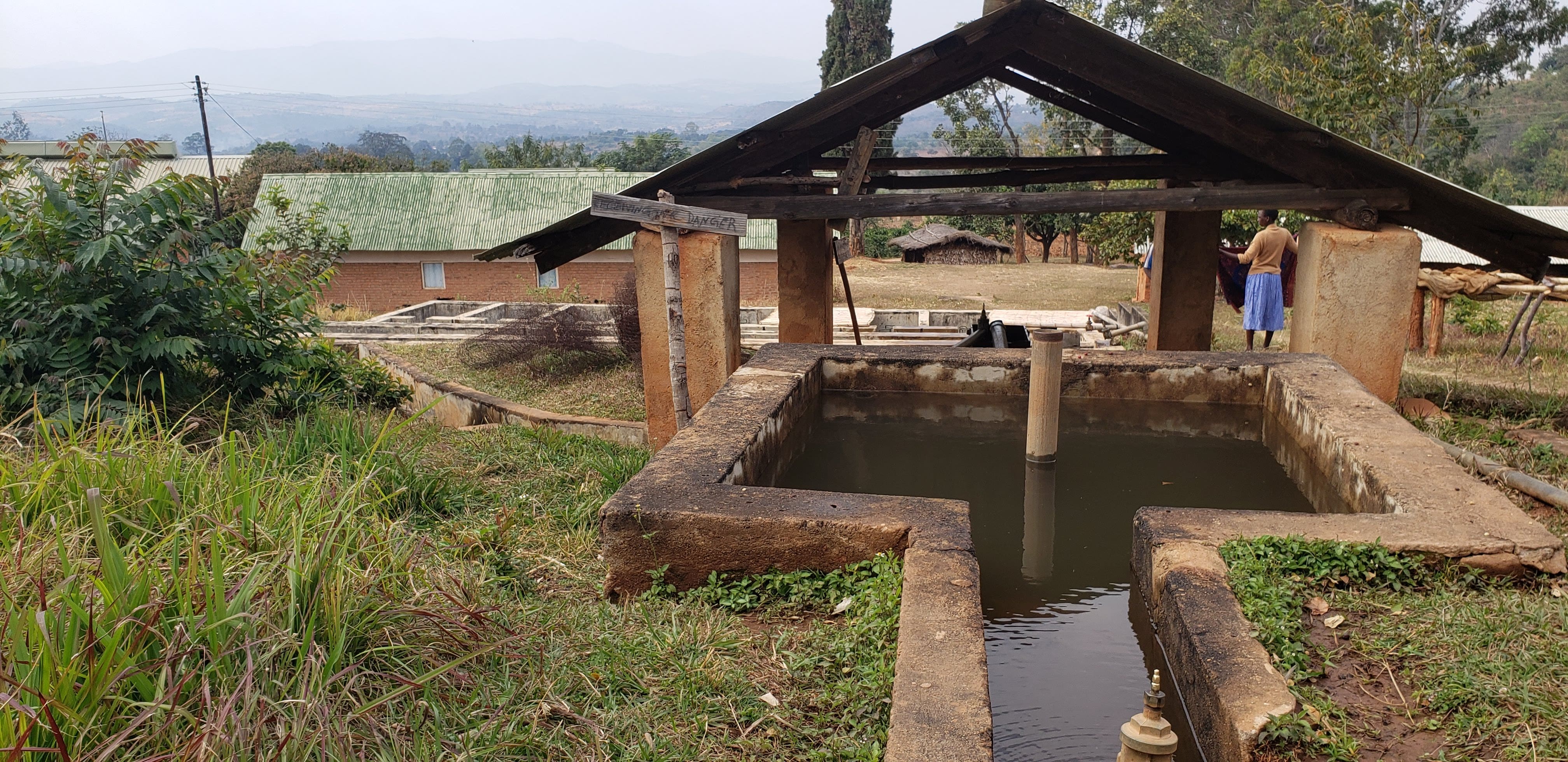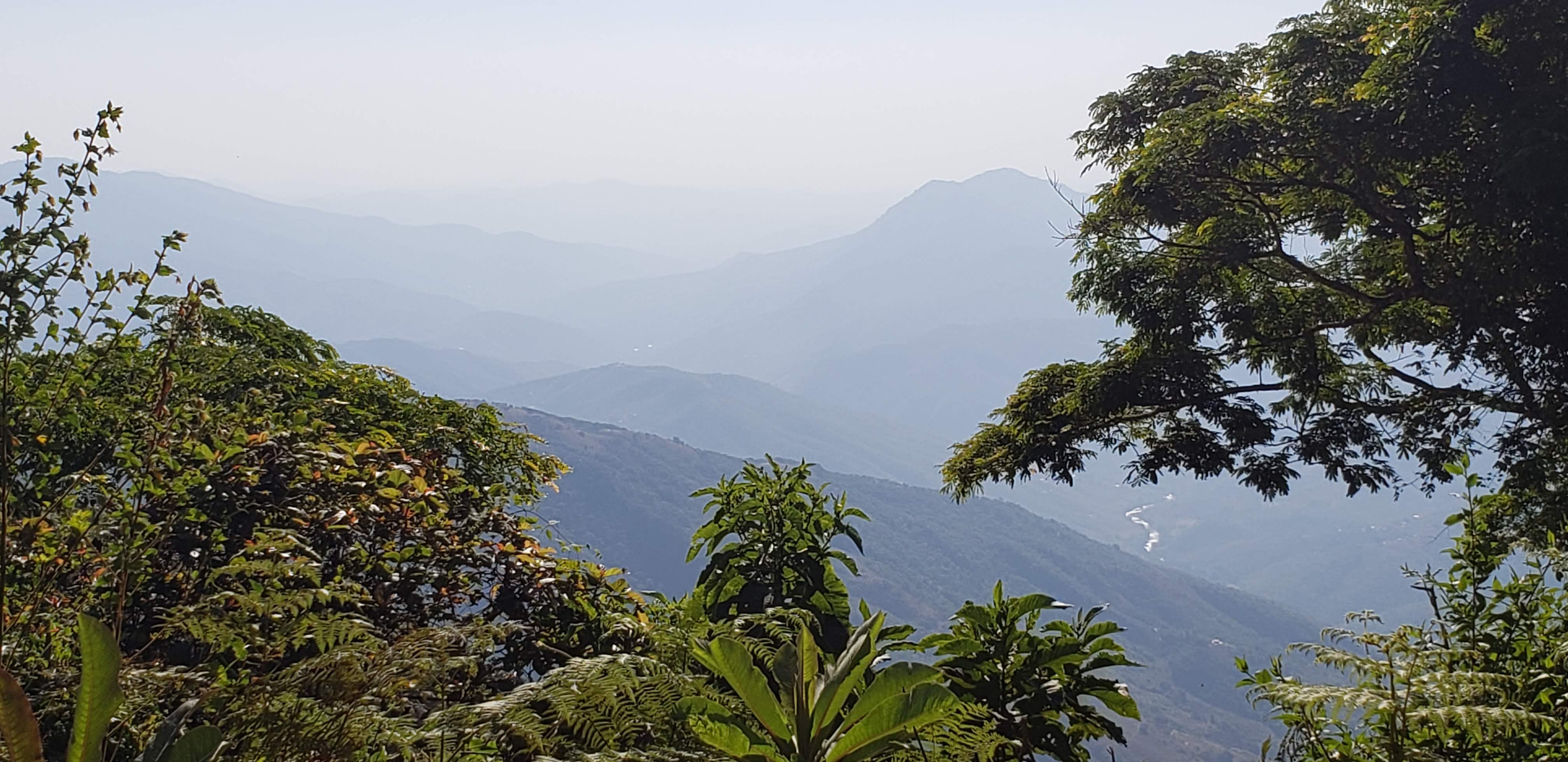This August I traveled to Kenya, Tanzania, and Malawi to visit several Atlas partners. See blog post about the Tanzania portion here, and read on to hear about the Kenya and Malawi portions.
I started this trip in Nairobi visiting NKG Coffee Mills Kenya (Coffee Mills) and Ibero Kenya Limited (IberoKe), NKG’s Kenya dry milling and export operation, respectively. NKG has a strong presence in East Africa, dating back to 1964, and currently partners with over 200,000 smallholder farmers. Coffee Mills is the largest miller/shipper in Kenya and the only facility in Kenya with services to mill, prepare for export, and seal containers in one location, saving considerable time and cost to shipments. IberoKe also happens to be the export wing of NKG East Africa—which composes Kenya, Tanzania, and Uganda—so it’s a busy operation. The folks in NKG’s lab will cup up to 1,000 samples/week from Kenya during the harvest season (March to June) and 600 samples/week from Tanzania during the season (June-October), so they keep their two six-barrel sample roasters humming right along.
In Kenya alone, NKG manages ~ 3,000 hectares/8-9% of all coffee in Kenya. The mill and warehouse is spotless, and when Coffee Mills purchases parchment from members, they sell the chaff byproduct to local brick-making companies and disburse the profits proportionally to sellers at the end of the season.
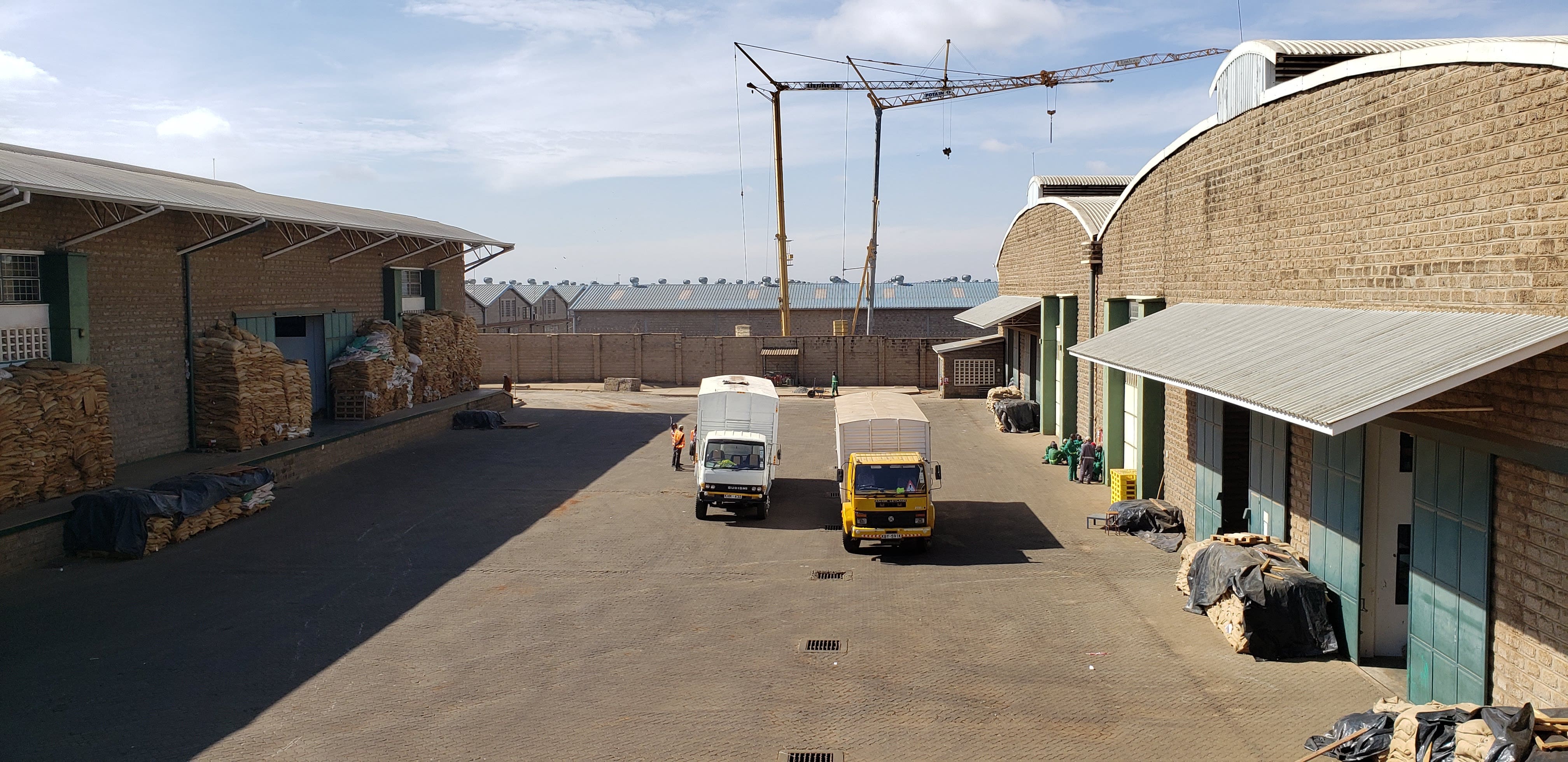
NKG Coffee Mills' dry mill on the left-hand side, with IberoKe's export building on the right-hand side
In the lab we cupped 18 tasty samples from three nearby Farmer Cooperative Societies- Thirikwa, Iyego, and Rung’eto—whom IberoKe offers pre-harvest financing at rates much lower than local bank rates (which can be as high as 40%!), access to inputs during the harvest, and training on good agricultural practices. This past year, IberoKe brought in around a dozen farmers to cup their own coffees and learn more about how roasting and sampling work.
After a couple of days in Kenya and a week in Tanzania, I joined up with Maire Reier of Twin Trading to spend several days in Malawi meeting with Mzuzu Cooperative Union as well as Misuku Cooperative and Phoka Cooperative, two cooperatives who have been under the larger umbrella cooperative. Atlas has purchased coffee from Mzuzu on and off over the years, and it was time to visit and hear first-hand updates from the specialty coffee scene in Malawi.
Malawi's coffee production is roughly divided geographically, with coffee estates in the south, and cooperatives--historically under the umbrella Mzuzu Cooperative Union--in the north and central regions. Mzuzu is comprised of six cooperatives and 61 washing stations representing 2,600 members. The cooperative union has a dry mill at its headquarters in Mzuzu town and an annual production capacity of between 22 and 25 containers (including lower and commercial grades). Mzuzu has dominated the Malawi specialty coffee scene for the last couple of decades.
Like other union umbrella cooperatives we work with, each cooperative is registered as an independent cooperative. Members buy shares in the smaller cooperative, cooperatives buy shares in the union, each cooperative has its own board, and the chair of each cooperative is a member of the union board. If the board chair is a man, the vice-chair must be a woman.
The 11 members of the Mzuzu Union board are comprised of an independent chair (chosen from one of the coops), six coop chairs, two ex-officials (one from government who is a permanent member; other being someone with considerable business/financial acumen), and a women from each of the two largest cooperatives. Mzuzu also has several other businesses, including roasted coffee for local and regional consumption, a coffee shop, a cooperative-owned coffee Estate called Usingini, and tea and honey production. Mzuzu and its cooperatives have also done extensive gender-equity training and GALS workshops, and have also promoted women-produced coffee in several of its cooperatives.
Our first stop was Misuku Cooperative, located in the lush Misuku hills in the very north of the country, right along the Malawi-Tanzania border and not far from the border with Zambia.
Farmers shared with us the history of Mzuzu Cooperative Union. It was founded in 1999 when the coffee sector was liberalized in Malawi. In 2006 a large European-Union backed project allowed the cooperative to expand and build its washing stations, and to rapidly increase membership and capacity. The cooperative has been Fair Trade certified, some of the cooperatives are Organic certified, and some offer women-produced lots. Under each cooperative, farmers are a part of a business center unit (smaller group of farmers) who are part of business zones (each zone has a washing station/CPU), which allows for groups to organize and train more efficiently.
We visited Chinongo CPU, where its 56 members were meticulously processing coffee. With the higher altitudes and cooler climates, it can take up to 3 days to ferment the coffee, and some of the CPUs have McKinnon depulpers, while other have installed Ecopulpers to cut down water usage, manual labor, and energy costs. I was thoroughly impressed with the high-quality standards being practiced at the Chinongo CPU, from covering parchment during the heat of the day, processing floated cherries separately from other grades, thorough hand-picking, and storing parchment off of the floor to mitigate moisture.
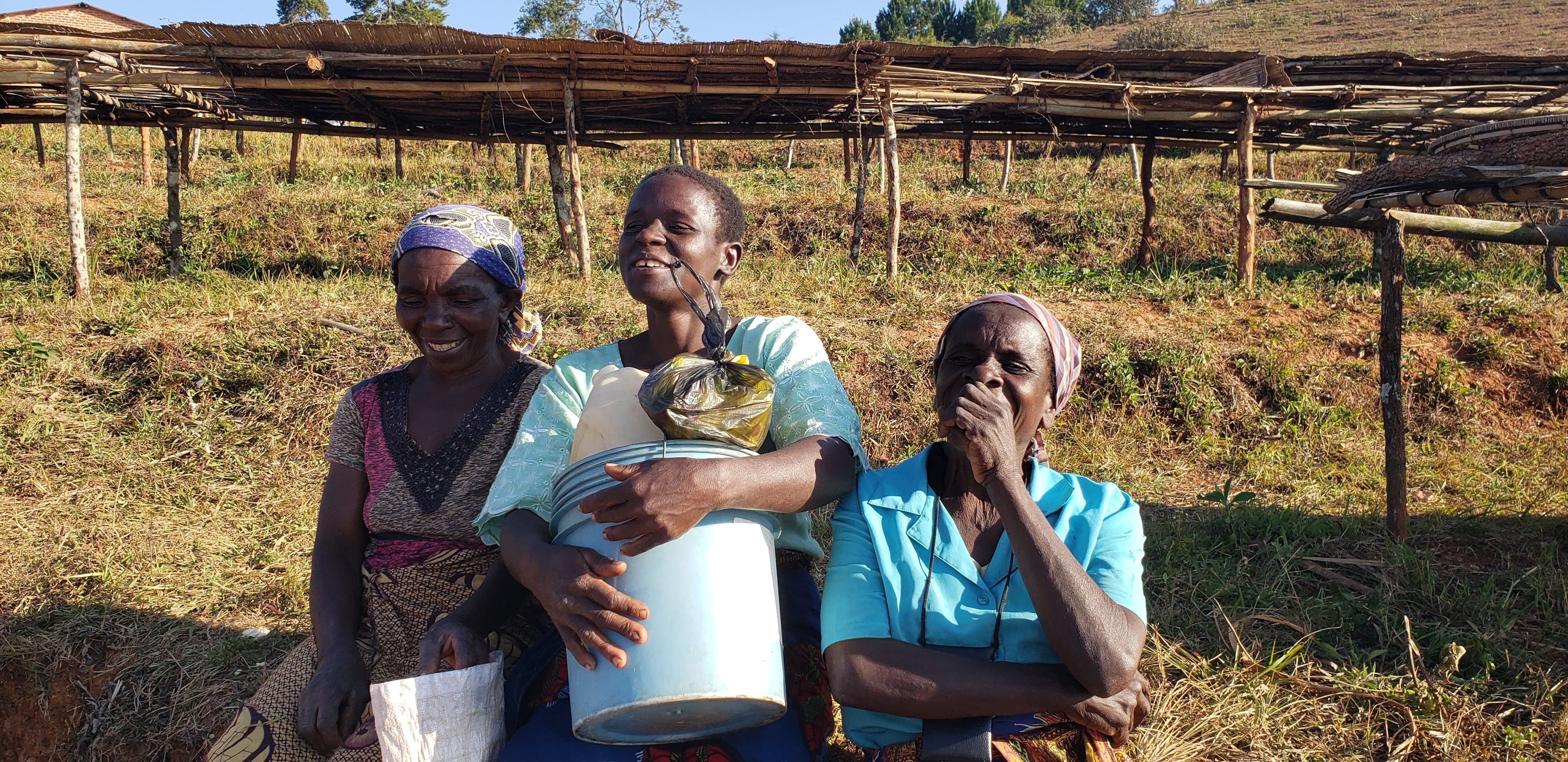
Agnes, Marieta, and Forgiveness, members of Chinongo CPU, who shared their weekly schedule during harvest
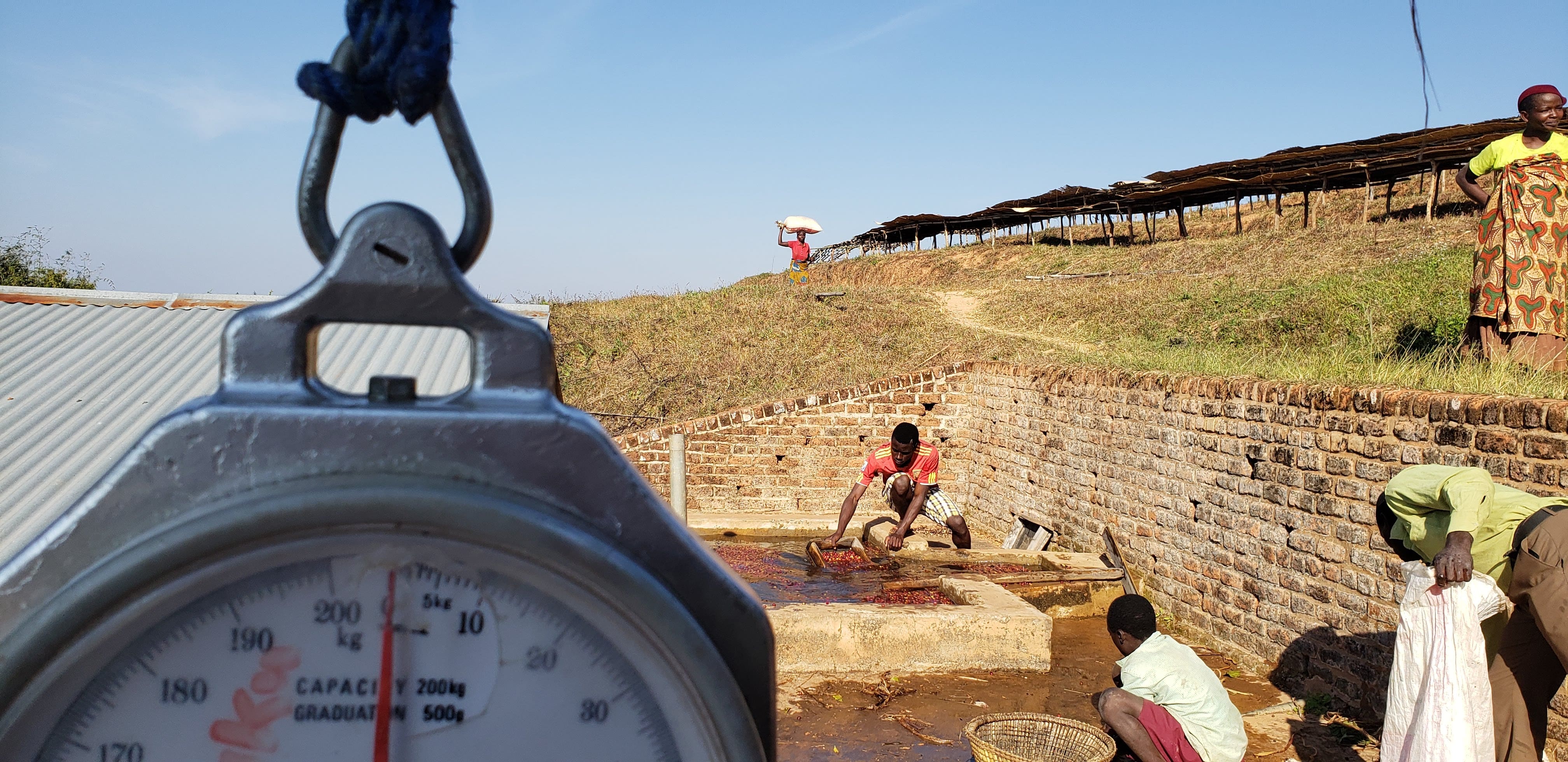
Members at Chinongo CPU remove floaters and pulp from 12-3pm, ferment for 2-3 days (refilling and washing the tanks each day), wash and soak for 16 hours, sort and dry parchment for 10 to 14 days (covering it in the early afternoon heat), and store it by day lot and quality. The CPU has a nursery, members use coffee pulp in maize fields, and the members all work together to sort parchment.
We then visited Phoka cooperative, located in a lush valley adjacent to Nyika National Park and less than 30 km from the western shore of Lake Malawi. We met with leaders to hear about latest developments with the cooperative, and talk about success and challenges alike before touring Ntchenachena CPU. Back at Mzuzu Union, we cupped several lots from last season which were still available for purchase and talked about Mzuzu’s plans for next harvest.
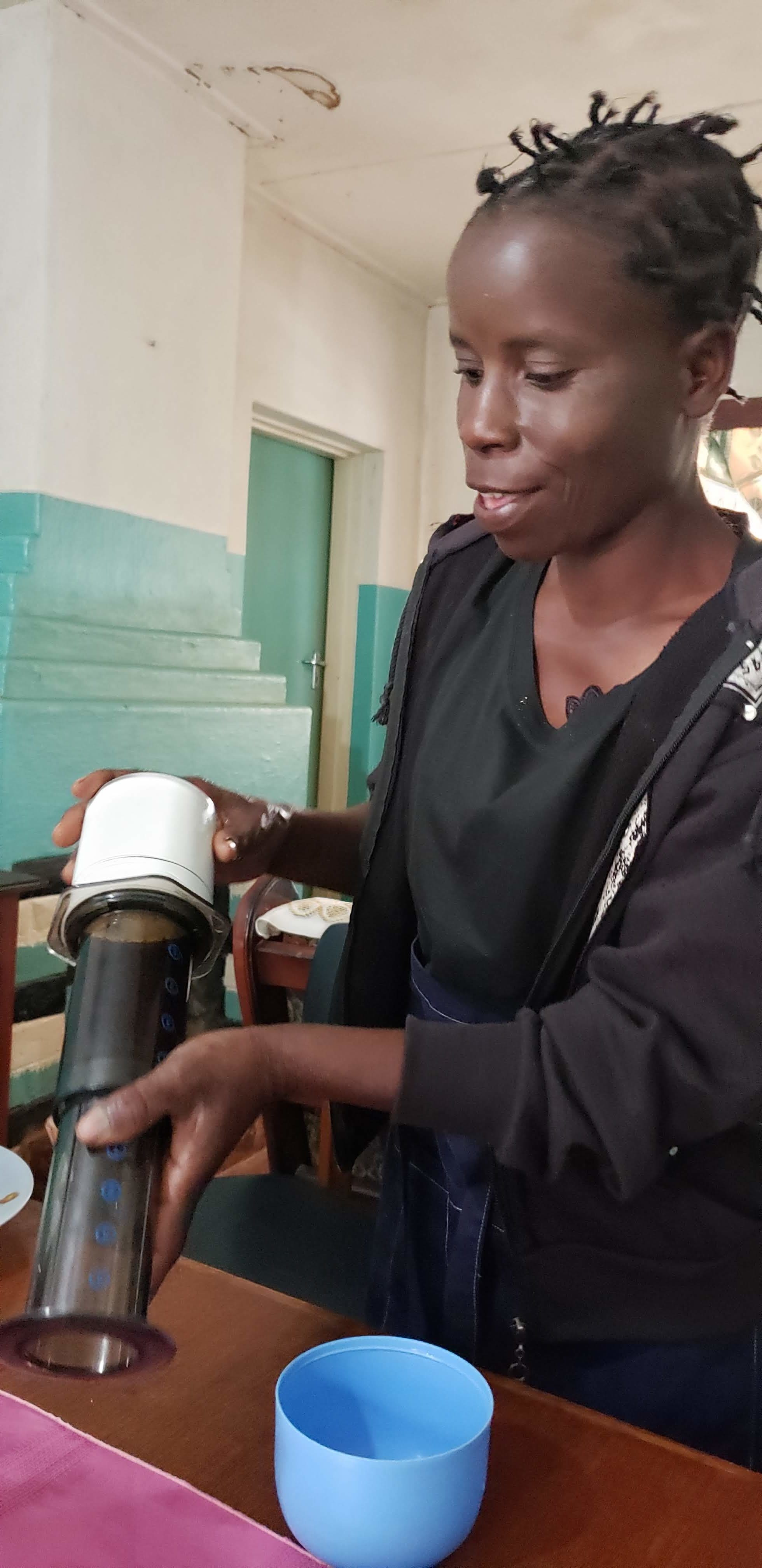
Gloria runs the coffee lodge at Phoka Cooperative. In addition to incredible cooking, she was a quick study in making an excellent Aeropress!
While coffee-growing conditions are optimal in many areas of Malawi, with Mzuzu spreading across half of a country, communication and transportation between cooperatives and the cooperative Union can be challenging. Also, because Mzuzu does not have any internal competition from other cooperatives—it is considered the coffee cooperative of Malawi—there are limited resources (no other dry mills in the north/central part of Malawi) making price discovery challenging. A fair amount of parchment from Malawi is illegally smuggled into Tanzania; during this visit we heard stories of Chinese representative going around and offering individual farmers very low prices ($1/kg) for parchment.
The challenges are steep, but Malawian coffee farmers have grit and determination to make coffee-farming work in an area with few other income-generating alternatives. Malawi’s coffee history is storied--from the late 1800s when Dr. John Buchanan brought the Nyasa coffee varietal to Malawi from the Royal Botanic Garden in Edinburgh; through colonial rule when the British owned large coffee plantations and estates; through a steep decline in production in the 1980s and 1990s due to coffee disease and organizational mismanagement; to today, where there are a few estates and between 3,000-4,000 smallholder coffee growers working to improve livelihoods and produce high-quality coffee. We hope that the Malawi coffee sector will grow and deepen in the coming years, becoming known for its coffee just as much as its coffee-growing neighbors in East Africa.
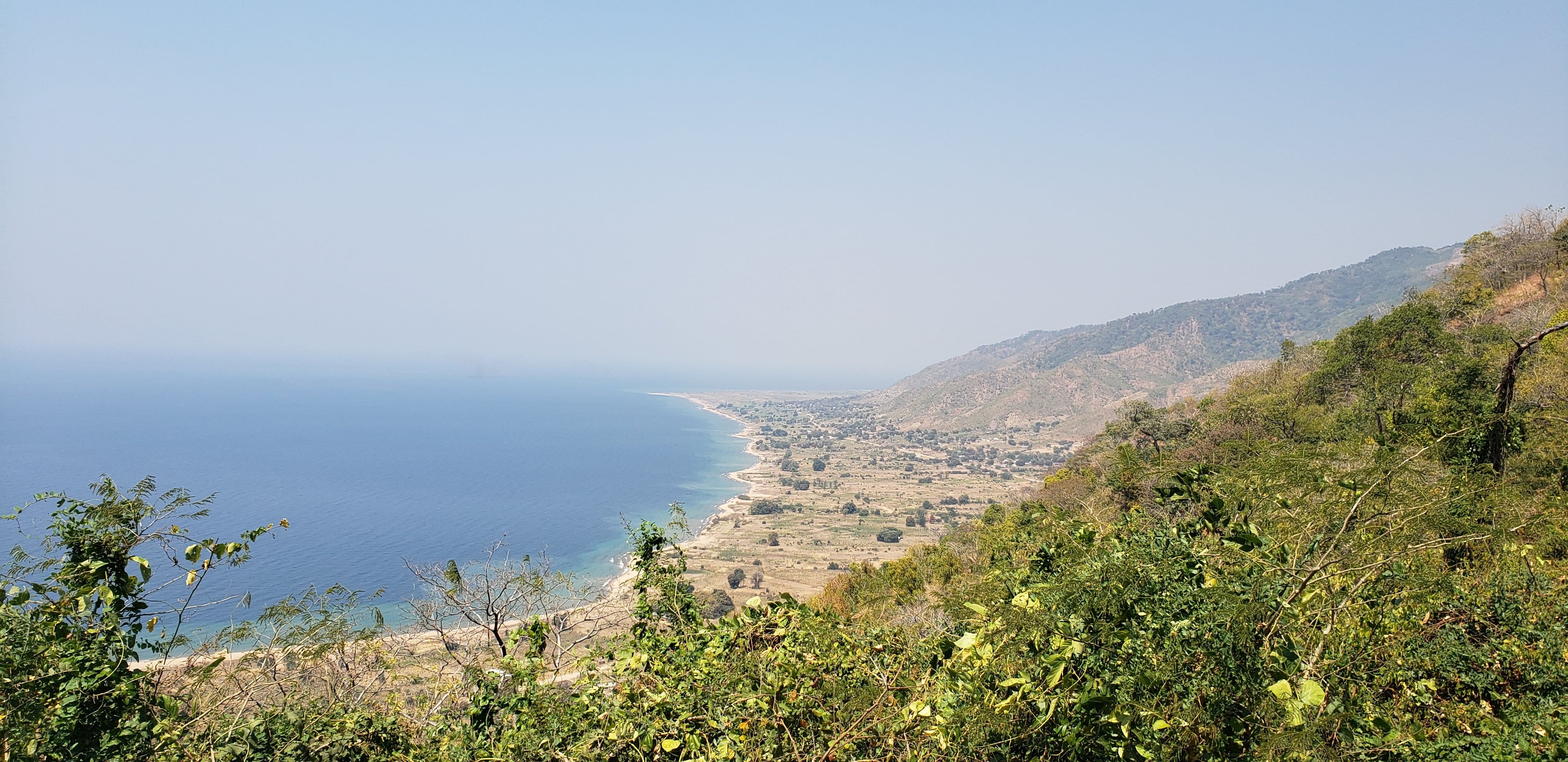
Lake Malawi, one of the world's oldest lakes, and home to more species of fish (700+) than any other lake in the world.
